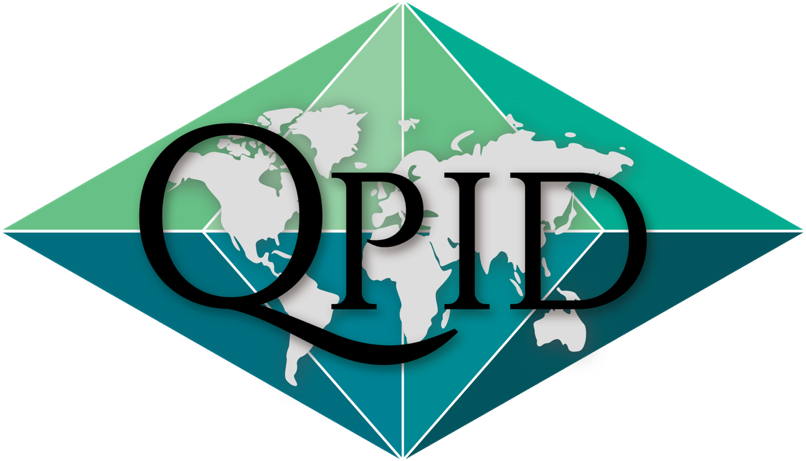From McGill to Rwanda: A Glimpse into the World of Development Work
Interviewer: Julie Foster, QPID Finance Director
Interviewee: Kristen Foster, Business Operations Associate at One Acre Fund
My sister has worked in development for the past three years following her completion of a business degree at McGill University. To provide you all with a glimpse at her experience I conducted the brief interview that follows. Enjoy!
Julie Foster: Why did you choose to work in development?
Kristen Foster: I chose to work in development because I think the fact that certain regions have been considered less developed than others for significant periods of time, without any prospect of changing that world order, suggests there are more complicated barriers at play. This is the most complex relationship that I’ve observed.
I’m also fascinated by how something that may seem like a norm or be common sense in one culture can be very different in another culture. I think the best way to understand these cultural assumptions is by living in different places rather than merely visiting.
JF: What organization do you work for?
KF: I work for the One Acre Fund in Rubengera, Rwanda. In short, we assist smallholder farmers in a variety of services to make farming more productive. We provide farmers with inputs (i.e. seed, equipment), give them on loan, and provide training to farmers on how to use the inputs. The organization began in East Africa, and we currently serve farmers in Kenya, Rwanda, Burundi, Tanzania, Uganda, and Malawi. The simple idea is that when farmers improve their harvests, they pull themselves out of poverty and produce surplus food for their neighbors. One Acre Fund is growing and is soon to represent Africa’s largest network of smallholder farmers. Check out the website to learn more: https://www.oneacrefund.org/
JF: What do you do?
KF: I am a Business Operations Associate, or in other words a database manager. I manage teams that do everything from data collection to data entry, data cleaning, data audits, data manipulation and analysis. My job is to take all the data from the field and use it to work with other departments to make their field ideas come to life and be scalable.
JF: What is your daily routine in Rwanda?
KF: When I wake up I go through my emails to find which ones are urgent and execution based and answer them. Then I go to the office and see how the team is doing. If they have problems I help them brainstorm solutions. Then I have a couple meetings with various stakeholders from other departments to help them think through the implications of what they want to do. Then I’ll have a check-in with one of my direct reports and talk about their professional development and any problems they are having in their team. Then I go home and do some data analysis and answer more strategic emails. I live on One Acre Fund’s compound so there are plenty of people around. At night, I work out with some neighbours. If it’s my night to cook I’ll make dinner and then eat with about 15 other people, and then read or watch TV before bed.
JF: What is the biggest challenge you have encountered in your job?
KF: External uncertainties. Our impact is extremely dependent on factors that are often outside of our control. Trying to anticipate those factors and make our internal systems flexible to handle last minute changes needs to be balanced with cost efficiency. The Rwandan Government, for example, takes corruption very seriously, which can lead to last minute regulations that we need to work within.
JF: How is Rwanda unique in East Africa?
KF: A lot of cultures in East Africa are group oriented which means that microfinance institutions tend to use that group culture as a form of collateral instead of assets (which the poor don’t have as much of). It is often a rule with savings groups that if one person doesn’t pay back a loan in a group the rest of the group can’t receive more loans. However, Rwanda is much more individualistic so this structure doesn’t work as well. Our organization is looking into modifying our lending structure in Rwanda.
JF: How is One Acre Fund different from other NGOs?
KF: Our headquarters are never based in a capital city. We’re always based in rural areas which allows for more interaction with clients.
There is quite a bit of autonomy on levels lower down which reduces a cookie cutter effect. This means that someone lower than a director can take a local context into account and run with it (as mentioned above with the savings group loan scheme).
We have a strong focus on professional development such as providing bi-annual performance reviews, weekly updates with your manager, and constant feedback.
JF: What piece of advice would you offer to someone looking to enter the development field?
KF: Think about what you want to do on a day to day basis. In my opinion, being passionate about a cause and wanting to work for an NGO is not enough to be satisfied with your job. With that sort of mindset, you’ll be unimpressed on the level of impact that you can make in the first few months at your first job. Instead, think about what you enjoy doing on a day to day basis and find somewhere where you can hone those skills so that you can make increasingly more impact over your career.
